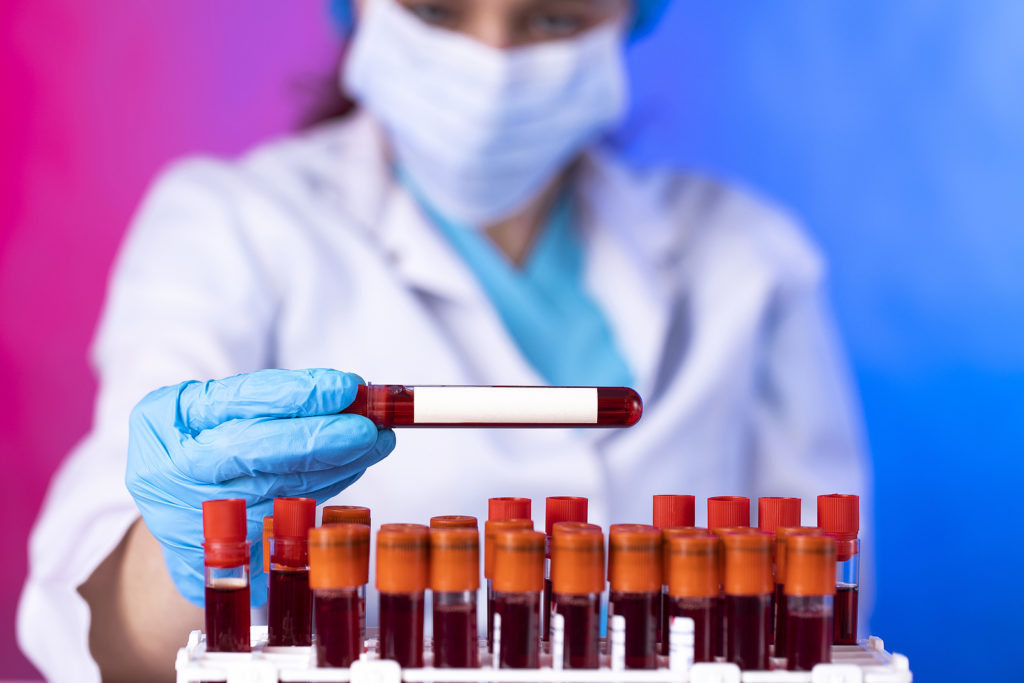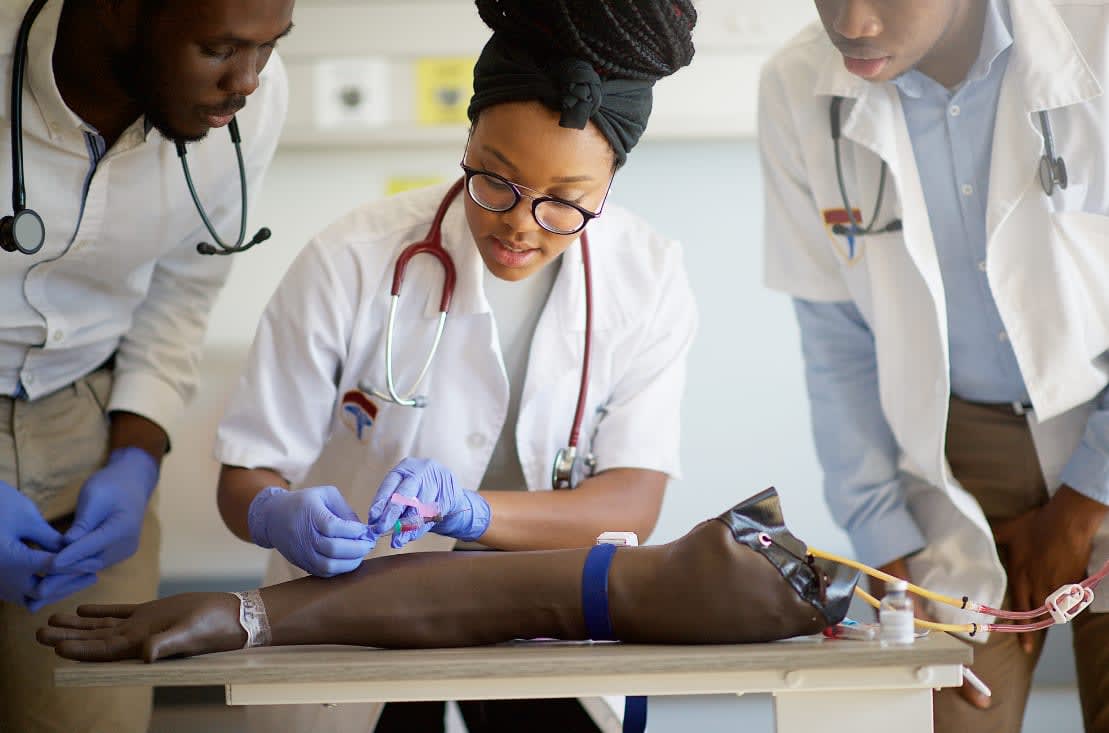The Path to Certification: Comprehending the Phlebotomy Training Program Trip and Its Relevance
As you consider the path to certification in phlebotomy, it's essential to comprehend the role you'll play in healthcare. Your training will certainly cover vital skills, from blood collection methods to patient communication.

The Role of Phlebotomists in Healthcare
Phlebotomists play an important role in the healthcare system, acting as the vital link in between people and necessary analysis testing. You'll execute blood draws, ensuring examples are collected precisely and safely. Your experience assists in detecting medical problems, monitoring health and wellness, and guiding therapy choices.
In your everyday interactions, you'll need to develop count on with patients, making them really feel comfy during what could be a difficult experience. You're liable for labeling and taking care of samples meticulously to avoid contamination or mistakes, which could influence test outcomes.
Yet, you'll commonly work along with physicians and nurses, interacting critical details regarding patients' problems. Your role is basic in maintaining the operations in healthcare setups, guaranteeing prompt and exact outcomes. By mastering your skills, you add meaningfully to individual treatment, making you an essential component of the clinical team. Embracing this obligation is crucial to your success as a phlebotomist.
Overview of Phlebotomy Training Programs
When exploring phlebotomy training programs, you'll locate numerous kinds created to fit different schedules and learning designs. Each program assists you establish vital skills like blood collection and patient communication. Recognizing these choices is essential to choosing the right course for your occupation.
Kinds of Training Programs
Several kinds of training programs are readily available for those aiming to come to be efficient in phlebotomy. You can pick from certificate programs, which typically last a few months and concentrate on necessary skills. There are also diploma programs that offer a more thorough education, commonly lasting as much as a year. If you're trying to find a much deeper understanding, an associate level in an associated area could be the appropriate fit. On-line training courses supply flexibility for those balancing work or family commitments, allowing you to research at your very own rate. In addition, some hospitals and clinics offer on-the-job training programs, giving functional experience while you discover. Whatever course you pick, each program intends to outfit you with the essential abilities for a successful phlebotomy job.

Key Skills Established
Understanding phlebotomy calls for a collection of key skills that are developed through extensive training programs. You'll discover technological abilities like correct vein selection, needle insertion, and blood collection techniques. These hands-on methods assure you can execute treatments safely and effectively. Furthermore, communication abilities are essential; you'll need to engage with people, clarify treatments, and placed them comfortable. Recognizing makeup and physiology is crucial, as well, as it assists you find veins and comprehend the body's action to blood attracts. Lastly, you'll gain knowledge of safety protocols and infection control, assuring you maintain a clean and sterile environment. Each of these abilities is important for your success as a certified phlebotomist, making you a useful property in any kind of medical care setting.
Trick Components of a Phlebotomy Program
In a phlebotomy course, you'll concentrate on essential topics that lay the foundation for your future profession. You'll involve in hands-on training that allows you to apply what you have actually learned in real-world settings. Both the core educational program and useful experience are essential for your success as a phlebotomist.
Core Curriculum Introduction
While seeking a phlebotomy training course, you'll come across a curriculum made to equip you with basic abilities and knowledge. Phlebotomy school. This educational program generally consists of makeup and physiology, concentrating on the circulatory system and recognizing blood components. You'll likewise discover different kinds of blood collection techniques, including venipuncture and capillary slit techniques
In addition, infection control and safety and security protocols are crucial elements, guaranteeing you know exactly how to keep a sterile atmosphere. You'll examine patient communication, stressing official statement communication and compassion, which are vital for easing client stress and anxiety. Finally, honest and legal considerations will be resolved, preparing you for real-world duties. This foundational knowledge will certainly allow you to succeed as a phlebotomist and give high quality care in medical settings.
Hands-On Training Experience
Obtaining hands-on experience is an important component of your phlebotomy training program. This useful training enables you to use what you've found out in a real-world setting, boosting your skills and self-confidence. Phlebotomy Classes Near Me.
Furthermore, you'll get the possibility to connect with individuals, which is important for creating your communication abilities. This combination of technological proficiency and social skills is vital for your success as a certified phlebotomist. Eventually, hands-on training is where theory fulfills practice, solidifying your knowledge and readiness for certification.
Qualification and Licensing Demands
Before you can start your profession in phlebotomy, it is crucial to recognize the accreditation and licensing needs that vary by state. Most states need phlebotomists to hold an accreditation from a recognized company, such as the National Phlebotomy Organization or the American Society for Scientific Pathology. These certifications normally entail passing an examination that examines your knowledge and abilities in the area.
Along with accreditation, some states have particular licensing demands. You may need to finish a particular number of hours in medical method, submit proof of training, or undergo a history check. It is essential to research your state's policies to ensure you meet all required criteria.
Staying informed about these needs not just assists you protect a setting however also boosts your reliability as a professional. By meeting these requirements, you'll be well on your way to an effective occupation in phlebotomy.
Hands-On Training and Practical Experience
Hands-on training and functional experience are necessary elements of your phlebotomy education, as they permit you to use theoretical expertise in real-world scenarios. During your training, you'll take part in monitored venipuncture, discover proper strategies, and end up being aware of various blood collection tools. This straight involvement is vital for building your confidence and sharpening your skills.
You'll work very closely with seasoned experts who can guide you via the subtleties of client interaction and example handling. Each session not just strengthens your understanding but also prepares you for the busy setting of medical care setups.
Additionally, several programs integrate scientific rotations, allowing you to experience varied settings, from medical facilities to outpatient clinics. This exposure helps you adjust to various difficulties and person demands, guaranteeing you're well-prepared for your future function. Embrace these opportunities, as they're essential to coming to be an experienced and thoughtful phlebotomist.
Challenges Dealt With Throughout Training
While acquiring hands-on Resources experience is important, it's vital to acknowledge the obstacles that can occur throughout your phlebotomy training. You might run into anxiety when executing procedures on actual clients, specifically if you're new to the setting. The pressure to obtain everything right can be frustrating. Additionally, grasping the abilities needed for blood attracts takes technique; you may have problem with technique originally.
Time administration can likewise be an obstacle, as harmonizing concept, functional sessions, and individual commitments can feel challenging. You may face varying learning paces among your peers, leading to feelings of self-doubt if you think you're dropping behind. Ultimately, adjusting to the various personalities of teachers can be tough, as each might have an one-of-a-kind mentor style.
Acknowledging these challenges early can prepare you for success and aid you establish resilience throughout your training journey.
Career Opportunities After Certification

As you obtain experience, look at these guys you may even think about specializing in locations like pediatric or geriatric phlebotomy, accommodating particular person needs. Some phlebotomists pick to advance their careers by ending up being research laboratory technicians or pursuing additional education and learning in healthcare fields.
Furthermore, your certification can result in functions in training or managing new phlebotomists, enabling you to share your understanding. With the medical care industry constantly growing, your skills will certainly constantly remain in need, leading the way for a secure and meeting career. Accept the possibilities awaiting you!
Regularly Asked Questions
What Is the Common Period of a Phlebotomy Educating Training Course?
Phlebotomy training courses usually last around 4 to 8 weeks. You'll engage in hands-on practice, classroom direction, and on the internet knowing. Finishing this training prepares you for accreditation and a satisfying job in medical care.
Are Online Phlebotomy Courses Available?
Yes, on-line phlebotomy training courses are readily available. They supply adaptability and ease, permitting you to research at your very own rate. Simply confirm the program is recognized to satisfy accreditation demands and get beneficial abilities for your occupation.
Exactly How Much Does Phlebotomy Training Commonly Price?
Phlebotomy training commonly sets you back between $700 and $2,500, depending upon the program and place. You ought to consider factors like training course size, included materials, and hands-on experience when choosing the appropriate training for you.
What Prevail Requirements for Phlebotomy Training?
Common requirements for phlebotomy training typically include a senior high school diploma or GED, immunizations, and a history check. Some programs may also need basic medical care understanding or certifications, guaranteeing you're gotten ready for hands-on training.
Can I Function While Completing My Phlebotomy Training?
Yes, you can function while completing your phlebotomy training. Lots of trainees equilibrium jobs with their research studies, yet make specific to handle your time successfully to assure you meet both work and training dedications effectively.
Comments on “Key Things to Learn About Starting a Phlebotomy Training Course Today”